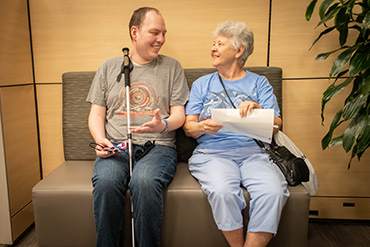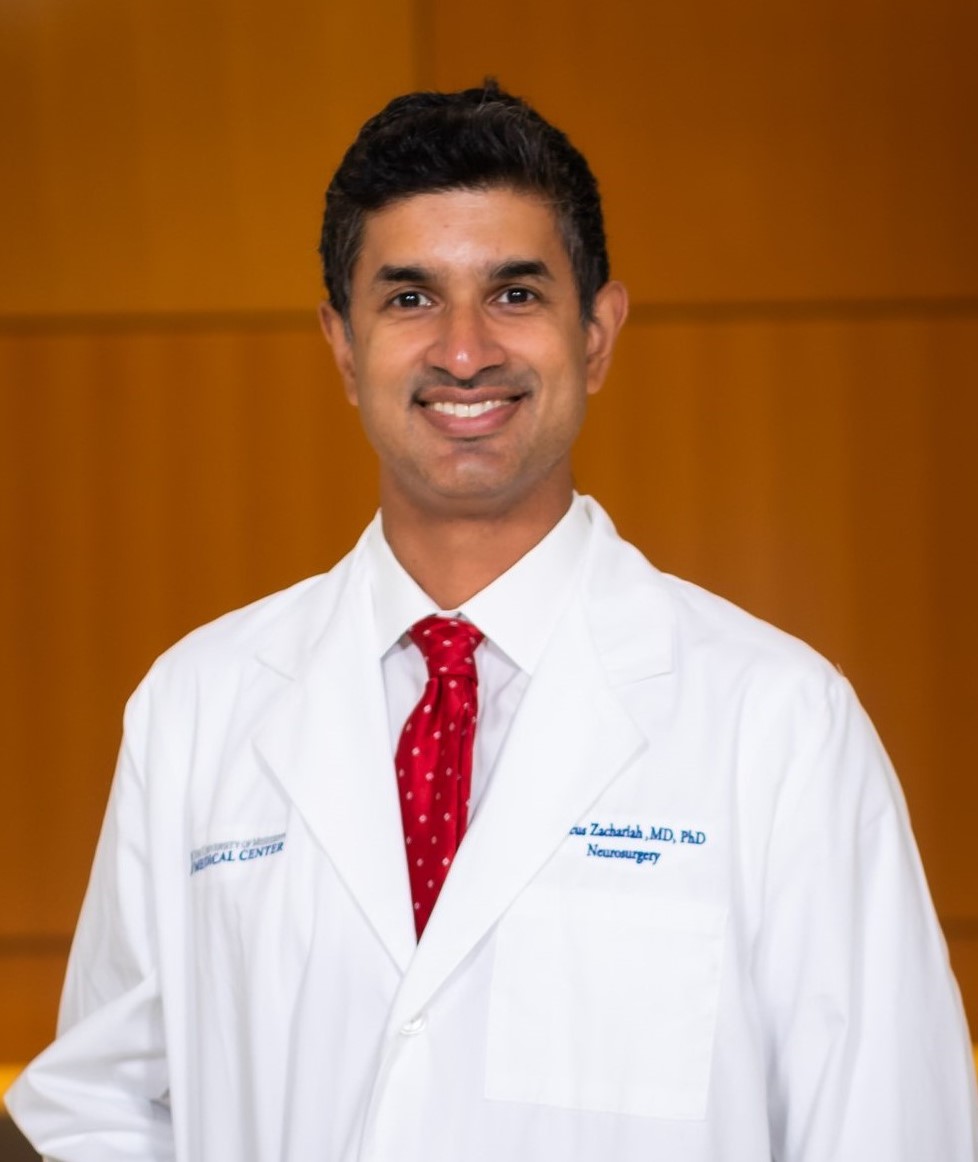Patient Story: Paul Miller - Pituitary Tumor

“The staff at UMMC literally and figuratively saved my life.” Those are the grateful words of Paul Miller, 38 of Horn Lake, who received emergent surgery at the University of Mississippi Medical Center in November of 2020.
In 2014, doctors diagnosed Miller with a pituitary brain tumor. He opted for brain surgery outside of Mississippi. He first received a trans labial resection, a procedure to remove as much of the tumor as possible through his nose, then received radiation to shrink what remained. Miller lived on his own, worked, and helped take care of his family with minimal difficulties for several years.
Then in April of 2020, Miller noticed that everything started looking fuzzy. The remnants of his tumor had grown, affecting his eyesight. The complications started with his peripheral vision. Two months later, Miller was declared legally blind.
“It was a shock to all of us. It affected all of us, not just him. It’s a thing to learn to embrace, but I might never wrap my head around it,” said Carolyn Miller, Paul’s mother. Forced to live with vision loss, Miller also struggled with losing his independence.
In November, Miller had what he refers to as “an episode.” It started with an awful headache and weakness that caused him to collapse. All he could do was bang on the door. When help came, he tried to speak, but his words came out garbled. He was rushed to the nearest hospital but it was unable to provide the critical care he needed. Airlifted to UMMC for specialized neurosurgical care, Miller found himself alone, in the middle of the COVID-19 pandemic restrictions, recently blind and feeling very isolated.

“He came to us completely blind, with a gigantic tumor that would kill him very soon if we did not operate,” said Dr. Marcus Zachariah, a neurosurgeon specializing in pituitary tumors. Zachariah consulted the UMMC Central Nervous System Tumor Board, made up of representatives from neurosurgery, neuroradiology, neuro-oncology and radiation oncology, to form a plan. Zachariah performed a craniotomy, the first step in Miller’s treatment. Miller recovered at UMMC for two and a half weeks after surgery.
“Even though the surgery went well, I was in a bad place. Visiting hours were restricted because of COVID, so the staff and everyone who dealt with my case really became a lifeline,” said Miller. “Being in a hospital is just icky, but through this entire process, I have discovered a profound new appreciation for medical staff. Nurses in particular. The whole time was like playing the ‘greatest hits’ of fantastic people.”
Carolyn, Miller’s mom, chimed in saying, “I think they all deserve one of those DAISY awards,” referring to a national accolade for outstanding nursing.
But Miller’s tumor was still lurking. So the second step of his treatment plan took place in May of 2021. Dr. Zachariah and Dr. Scott Stringer, performed an endoscopic resection to remove more of the remaining tumor through his nose. After both procedures, the team was able to remove 80 to 90% of the tumor, adding years to Miller’s life.
As he regains his independence and copes with his vision loss, Miller will continue his treatment in Mississippi, utilizing UMMC’s comprehensive care approach. At UMMC, Miller will see specialists in neurosurgery, otolaryngology, endocrinology and ophthalmology.
Grateful for the services UMMC provides, both Paul and Carolyn hope his story can help others who might be in the same situation. “I got dealt a bad hand, but I played it poorly. I wish I had gotten the right help six months earlier.”
The University of Mississippi Medical Center provides patient-centered treatment and sees the most complicated cases. Miller’s outcome and quality of life wouldn’t be the same without the specialized care he received from UMMC Neurosurgery.


